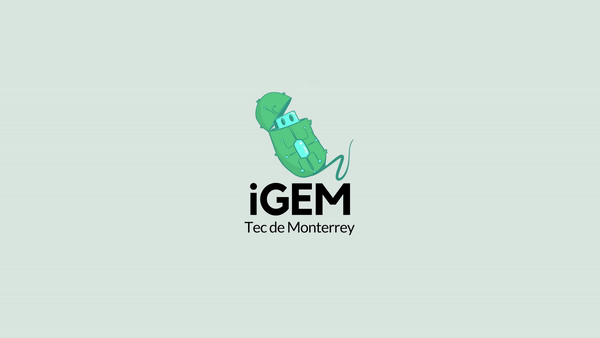Davidacevedo (Talk | contribs) |
Davidacevedo (Talk | contribs) |
||
| Line 202: | Line 202: | ||
overflow: hidden;" class="gif"> | overflow: hidden;" class="gif"> | ||
<div style="height: 10vh; width: 100%; text-align: center;"> | <div style="height: 10vh; width: 100%; text-align: center;"> | ||
| − | < | + | <table width="100%"> |
| − | < | + | <tr> |
| + | <td width="50%"> | ||
| + | Original image | ||
| + | </td> | ||
| + | <td width="50%"> | ||
| + | Image reconstructed from bacteria | ||
| + | </td> | ||
| + | </tr> | ||
| + | </table> | ||
</div> | </div> | ||
</div> | </div> | ||
Revision as of 02:44, 18 October 2018

DNA has been called an excellent medium
for archiving data, interpreting the four base
pairs as a new language.
| Original image | Image reconstructed from bacteria |
Through gene induction,
bacteria could store
external information in their DNA.
iGEM Tec-Monterrey 2018 attempts to create
a new system, which saves information regarding
its surroundings.

Information storage in DNA has
been demonstrated by recent efforts,
saving anything
from messages to animations.
E. coding composes a new mechanism for information storage.
E. coding
Scroll to know more
Tec-Monterrey
Storing the world one base at a time
Scroll to know more
DRAG AND DROP!


Pb

NO3

PO4

As



